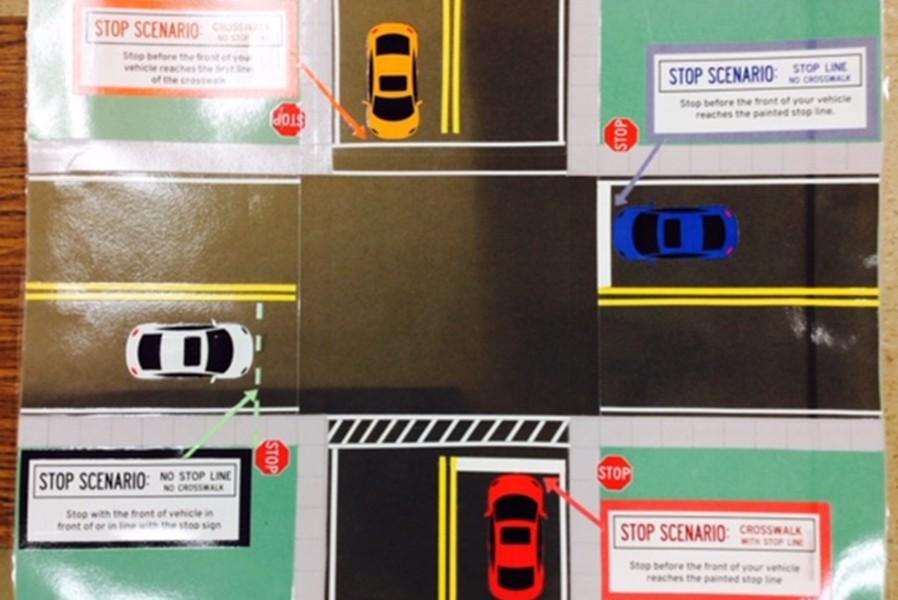When is a Teen Ready to Drive?
Acing Driver’s Ed. class is just the beginning
Mr. Hughes has a driving diagram to use with his Driver’s Ed students, but he admits book learning doesn’t tell you much about a kid as a driver.
October 25, 2016
A teen starting to drive is probably a parent’s worst nightmare.
Parents wonder: what if they get in a horrific car crash? What if they die? What if they kill somebody else?
Adolescence is a tough time either way, and science shows that the prefrontal cortex, which controls decision making, isn’t fully developed until a person’s mid-20’s.
Middle school gym teacher and high school Drivers Ed teacher Mr. Brent Hughes has been teaching Drivers Ed for nine years, and Behind the Wheel, an on-the-road driving course, for eight years.
According to Mr. Hughes, whether students get an A in his class or don’t get an A in his class has no effect on how well they actually drive.
“There is not a huge difference. So much of what we do is academic. That really doesn’t make a difference on how they drive,” he said.
There are many young drivers who motor to Bellwood-Antis every day.
Sophomore Riley D’Angelo got her license last month and she, like many of her peers, is not intimidated by driving.
“I feel so ready to drive. I can’t wait to take myself places,” she said. “I’m not horrible. I’ve almost been in two accidents so far, not too shabby.”
Mya Decker is never nervous when she gets behind the wheel. “Actually, I’m pretty comfortable behind the wheel.”
Others are more cautious and take confidence in knowing their parents are there for assistance.
Sophomore Kara Ingle is ready to drive with the help of her parents.
“For the most part, I’m ready to drive. I have my parents right beside me to help,” she said.
So, how do you know when a teen is ready to drive? Just ask these questions:
- Does he/she follow rules?
- Does he/she take responsibilities seriously?
- Does he/she generally resist peer pressure?
When it comes to setting the rules, it can be helpful to draw up a parent-teen driving agreement. This is a document, signed by you and your child, listing the terms of your teens driving privileges. Finally, there is a high tech approach. You can, in fact, know exactly what kind of driver your kid is when you’re not around through different means of electronic monitoring.
It is important to talk to your child about car safety and the privilege it is to be driving a car. Your child will be ready to drive when they are mature enough to be responsible, follow the rules, and most importantly always be paying attention while driving.
Like Kara, most teens appreciate the help they get from their parents.
“Driving is calm most of the time, but when I face new situations or skills it’s a little nerve wracking,” she said. “I feel better if one of my parents is in the car.”






